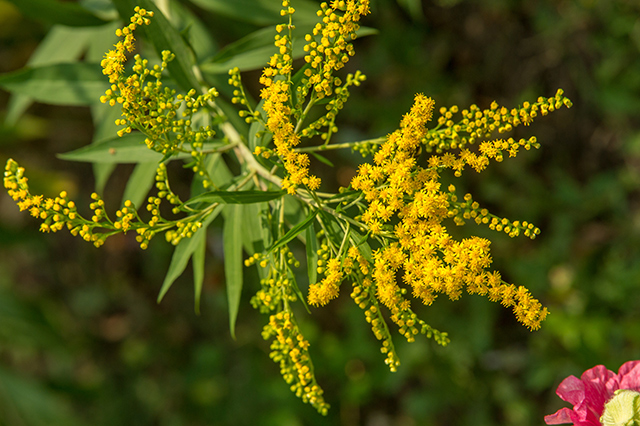Are you going through boxes of tissues weekly, finding yourself consumed with congestion and sneezing fits and wondering if it will ever end?
Here at The Plain Truth Your Health Today Online, we want to share health information that is not only off the beaten path and interesting, but that can actually help you.
Here is a compilation of a great videos on the topic that will hopefully result in some understanding but more importantly, RELIEF!
What exactly are allergies?
Dr. Berg Shares the Missing Link Connecting Your Allergies to Lack of Folate
He further explains how natural histamines can help...
Here is a great acupressure technique to help ease allergy symptoms and drain your sinus'.
Maybe herbal relief also will help...
Feeling the sniffles? Check out these herbs for allergy relief
Naturalnew.com

Mullein
Mullein (Verbascum thapsus) is used nowadays for less serious conditions like allergies, sore throat and inflamed tonsils. But according to functional medicine specialist Dr. Sobia Khan, the herb has been a go-to remedy for respiratory issues centuries before antibiotics were developed. Mullein's soothing properties make it a "friend" to the lungs.
Mullein contains antioxidants, such as vitamin C and flavonoids that protect cells from free radicals. It is also good for the lymph glands, a bonus for the immune system during allergy season. Moreover, the herb also possesses antiseptic and antiviral properties that stop pathogens in their tracks.
Goldenrod
Often considered a weed, the perennial goldenrod (Solidago canadensis) shouldn't be dismissed as such because of its antioxidant, anti-inflammatory and anti-histamine properties. It is well-known as a decongestant – effectively relieving blockages in the upper respiratory tract. This quality makes goldenrod a good choice for allergies, influenza, sinusitis or the common cold.
S. canadensis owes its medicinal properties to beneficial plant compounds it contains. Flavonoids like kaempferol and quercetin protect cells from damage caused by free radicals. Meanwhile, saponins in goldenrod enhance the immune system and help it ward off harmful pathogens. (Related: Stop spring allergies with these 5 easy-to-source herbs.)
Stinging nettle
Aspiring gardeners often link stinging nettle (Urtica dioica) with a painful encounter. However, the Arizona-based Sinus & Allergy Wellness Center considers it one of the most effective herbs for allergic rhinitis. In fact, stinging nettle has been used back in Ancient Greece for its anti-inflammatory properties.
Outside its painful quality, stinging nettle is a powerful antioxidant, astringent, antimicrobial and analgesic. It can reduce allergy-related inflammation without producing any adverse side effects. As a bonus, the leaves of stinging nettle can be cooked and added to salads, soups or stews – much like most green, leafy vegetables.
Horehound
A bitter herb of the mint family, horehound (Marubium vulgare) is often used in cough drops that help loosen mucus – making it one of the most ingested herbs in the United States. Given its potential to help suppress a nasty cough, the herb also shows potential to treat seasonal allergies. Horehound can relieve stuffiness, so it's ideal to take it when the allergy-related sniffles hit.
M. vulgare's medicinal properties stem from its plant compounds, such as trace amounts of volatile oils, alkaloids, flavonoids and diterpenes. Marrubiin, the most active diterpene in horehound, is responsible for the herb's expectorant properties. Moreover, the bitter-tasting marrubiin increases the flow of saliva and gastric juice – stimulating the appetite as a result.
Rosemary
Rosemary (Salvia rosmarinus) is more than just a cooking herb: It also helps address inflammation caused by allergic reactions, thanks to its bioactive compound rosmarinic acid. One study published in International Immunopharmacology expounded on this anti-inflammatory effect.
According to the study authors, rosmarinic acid greatly decreased the inflammation in mucus cells and hyper-secretion of mucus cells in an animal model of asthma. They also found that the plant compound reduced the number of goblet cells that trigger mucus hyper-secretion. Goblet cells often multiply in response to different factors such as cigarette smoke, particles and toxins.


No comments:
Post a Comment